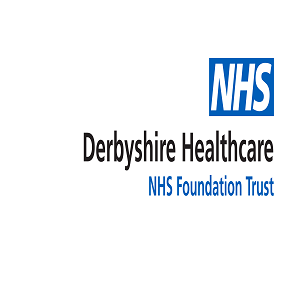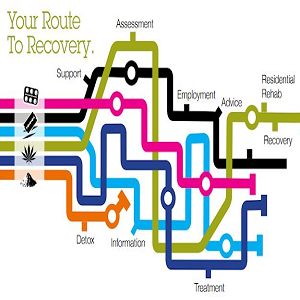Drug & Alcohol Rehab in Derby

How Does Rehab Work?
Rehabilitation is a process that helps individuals in working towards restoring balance and well-being. Rehab focuses on addressing the patient holistically with individual therapy aimed at addressing addictive behaviours. With guidance from a professional therapist or counsellor, coping mechanisms are taught and individuals can access much-needed support. Strategies deal with relapse prevention and clients can be assigned to an extended inpatient programme or move to an outpatient programme. With inpatient rehab (residential rehab), individuals will live at the rehab centre for the duration of treatment. Outpatient services are an alternative option in which clients will attend daily/weekly sessions for therapy but will not attend a full-time programme. There are both free and paid outpatient services available within the UK.
What Happens During Residential Rehab?
When you are ready to enter rehab for drug and/or alcohol misuse, it is a brave step towards recovery. Although achieving balance and breaking the cycle of addiction takes some effort, it can be achieved. To help you make an informed decision concerning treatment, we look at the options available and what to expect during rehab.
During rehabilitation, you are going to get an individualised assessment performed by a professional. The purpose is to determine the best treatment plan based on your medical history with addiction and current condition. Here, medical staff will look for comorbid disorders such as mental health conditions that exist alongside addiction.
An assessment is followed by detoxification. Detox is a structured process and is performed in a residential rehab or at home with support from a medical professional (outpatient services). During this step, individuals abstain from drugs and/or alcohol use until the substance is no longer present in the body. Because of the difficulties associated with withdrawal, a medically supervised detox from drugs and alcohol is advised.
While attending rehab you will receive therapy. Treatment can be provided on an inpatient or outpatient basis. Therapy consists of individual counselling including Cognitive Behavioural Therapy, skill-building and group sessions.
1. Assessment

A medical assessment is conducted just before treatment to identify medical history and alcohol/drug use over time. If you are seeking residential treatment, an admissions team will offer a telephone assessment. An assessment by telephone aids the treatment centre provides a customised treatment package. It can also help medical professionals to assist the individual during detox.
When you wish to pursue treatment for drug and alcohol addiction, a medical assessment has to be completed. Assessments will guide therapy because it provides staff with the information, they need to develop a tailored treatment plan or advise on the appropriate intervention.
2. Detox

Detox involves the cessation of drugs and alcohol from the body. With professional care, it is safely facilitated and is most commonly monitored in a private rehab because of dangers associated with withdrawal symptoms.
Detox is important where substance misuse and addiction are present. It should be managed by experienced and knowledgeable medical staff to limit uncomfortable and severe withdrawal symptoms. For those who go through withdrawal, there is a higher risk of relapsing if not managed within a rehab clinic. In a residential setting, qualified staff may offer medical treatment to minimise uncomfortable withdrawal. The approach for therapy, once detox is completed, is determined by the medical assessment.
3. Therapy

Therapy begins when the body is rid of drugs including alcohol. The choice of being assigned to an inpatient or an outpatient service will depend on the individual assessment, budget, and life commitments. Therapy provided in treatment ranges from individual counselling with a therapist, the attendance of group therapy, and emphasis on building positive coping mechanisms as well as skills.
Step by Step Process for Residential Rehab
To understand your medical and mental health history.
Arrange a suitable date to begin your journey to recovery.
Begin the managed withdrawal process from substances including alcohol.
To understand the root cause of addiction and how to overcome it.
Aftercare is provided to help manage the risk of relapse.
To help heal the wounds that addictive behaviour has caused others.
Find your Nearest Rehab Centre in Derby
The nearest rehab centre is Derby Drug and Alcohol Service.
Address: Derby Drug and Alcohol Service, St Andrews House, 201 London Rd, Derby DE1 2TZ
Call 0333 4444 432 to discuss your alcohol or drug rehab requirements and any other questions you may have about the process of residential rehab.
Outpatient Addiction Services in Derby
To make an informed decision on which form of treatment will guide you in your journey to overcoming addiction, it is important to understand the differences between outpatient and residential rehabilitation. Outpatient rehab can be very useful as it offers a flexible and cost-effective alternative to inpatient treatment.
Outpatient services are not a 24 hour or even a 12-hour programme, but instead, involve weekly sessions with a therapist or group. Individuals will live at home and continue to work or tend to family matters while receiving the necessary therapy.
PrivateOutpatient care involves individual counselling with a therapist. You are expected to travel to the therapist and engage in hour-long treatment sessions. Aside from private therapy, you can also find free services from charities and government-backed organisations to address substance dependencies.
The Benefits of Outpatient Services
Private Outpatient addiction services also provide tailored care for those looking for optimal support and chances of recovery. – Owing to the flexible arrangements provided by outpatient therapy, it can facilitate a large range of individuals and financial situations. Recovery sessions are typically attended once/twice weekly under the guidance of a certified therapist. – It is more affordable compared with a residential treatment programme.
The Challenges of Outpatient Services
Outpatient options will always have a crucial role in rehabilitation but for alcohol and drug addiction, staying in the same environment with access to triggers and the usual social circles is likely to risk relapse. Furthermore, free outpatient services provided by the NHS or UK-based charities do not provide the same tailored programme that private outpatient services provide, and there is typically a waiting list before you can be accepted for treatment.

How Much Does Rehab Services Cost in Derby?
Drug and alcohol addiction treatment in a residential setting can cost between £1500- £4000 per week. When private addiction treatment is not an option, our goal is to help you locate the right recovery programme that fits your financial requirements.
Fortunately, free programmes are offered by organisations including the NHS and charities such as Turning Point (that requires self-referrals). Other organisations that provide free and community-based services for drug or alcohol addiction include Alcoholics Anonymous (AA), Cocaine Anonymous, and Narcotics Anonymous.
Support Groups in Derby

Derby As Bill Sees It
Unitarian Chapel, Stafford St DE1 1JG

Derby Big Book
Friargate Unitaian Chapel, Stafford St DE1 1JG

Derby Step
Friargate Unitarian Chapel, Stafford St DE1 1JG
The Pros and Cons of Seeking Treatment in Your Local Area
Pros
1. You are familiar with the area which may provide a layer of comfort/safety.
2. Family or friends can easily travel to visit or are close by.
3. You may save on the costs of travelling long distances for treatment, or free addiction services may only be offered in your area of residency.
Cons
1. A local environment means access to drug dealers or other triggers. This is more of an issue if you opt for outpatient programmes.
2. Failing to consider locations outside your local area could mean missed opportunity for more valuable and rewarding programmes.
3. Addiction treatment programmes that are nearby don’t always provide the best standard of rehab.
The CQC website will provide information and ratings on a service in the event you are unsure regarding a particular service.


